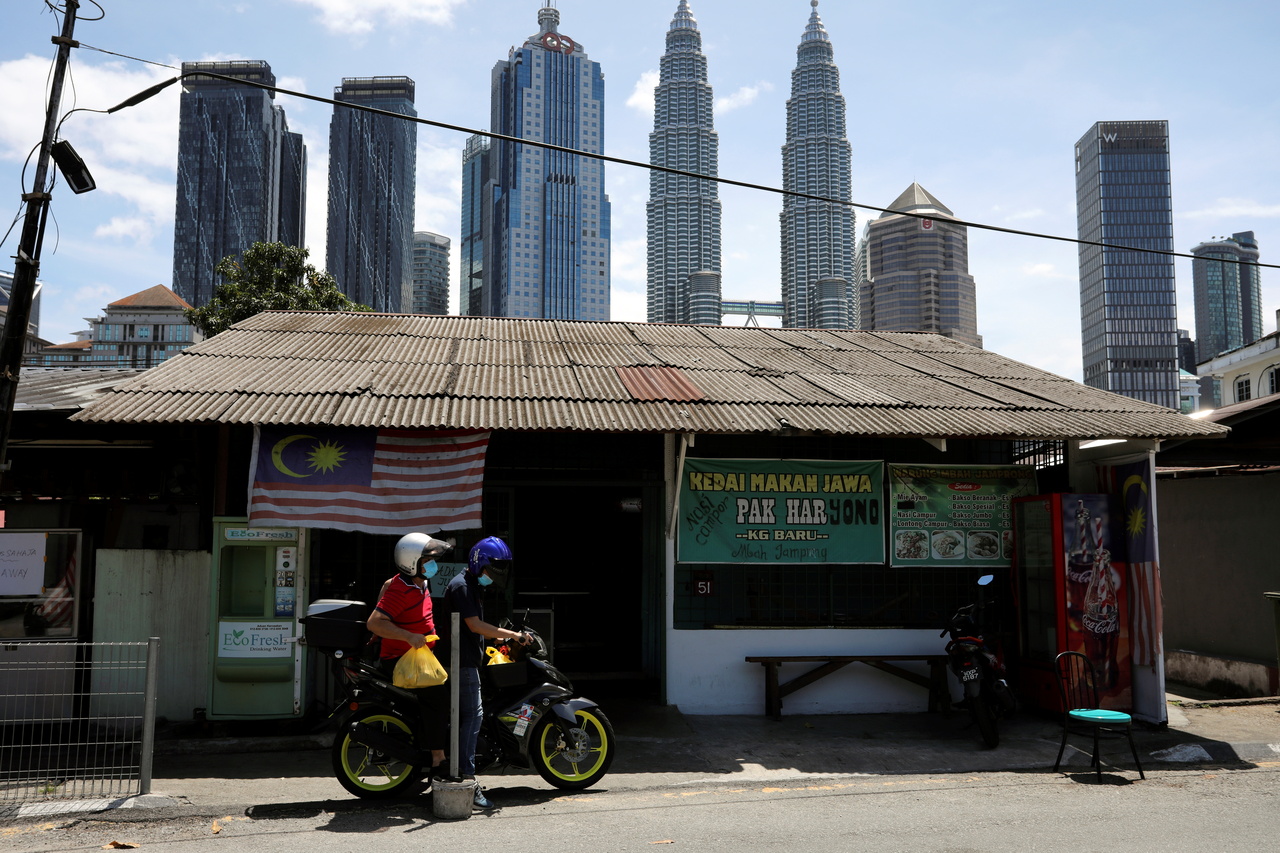Malaysia relaxes some Covid-19 curbs as fasting month arrives
Sign up now: Get insights on the biggest stories in Malaysia

All food premises will be allowed to remain open from midnight until 6am throughout Ramadan.
PHOTO: REUTERS
KUALA LUMPUR - Malaysia has relaxed coronavirus restrictions in most states as Muslims begin fasting on Tuesday (April 13), allowing the return of popular Ramadan bazaars and the evening prayer service, although new Covid-19 cases have remained above 1,000 a day for most of this year.
All food premises will be allowed to remain open from midnight until 6am throughout Ramadan, when previously they could operate only until midnight.
In mid-January, Malaysia banned travelling between its 13 states. The health authorities are under public pressure to quickly decide on allowing people to return to their home towns for the Hari Raya holidays in mid-May.
Last year, the government barred the annual mass exodus, known as "balik kampung", to prevent infections from spreading to rural areas.
Senior Minister for Security Ismail Sabri Yaakob said on Saturday that the government will ask the Health Ministry to make an early announcement on inter-state travel to allow Malaysians to make preparations.
Daily Covid-19 cases had dropped to below 1,000 a day only once this year - to 941 on March 29. The infections reached a daily peak of 5,728 cases on Jan 30, but have mostly trended above 1,000 but below 2,000 in the last seven weeks.
With each state government and the three federal territories deciding on municipal issues and on matters of religion, different approaches are being taken.
Most states are allowing Muslims to congregate nightly in mosques during Ramadan for the terawih prayers. Others are banning them.
"It is risky because the (Covid-19) numbers are still high. We can perform the prayers at home, it is the same thing," said teacher Ainul Abdullah, 42.
In the Kuala Lumpur federal territory, 65 bazaars have been allowed to operate daily from 3pm to 8pm, with shoppers and traders told to wear masks and maintain safe distancing.
In one of the biggest bazaars in KL, over 200 traders will set up stalls in the Jalan Tuanku Abdul Rahman shopping district for a month from 10am to midnight.
"Anyone who violates the standard operating procedure will face a compound (fine) up to a maximum of RM10,000 (S$3,300) against the individual, and RM50,000 for the organiser and face an immediate closure," KL City Hall said in a statement on Sunday.
Thousands of people usually swarm these bazaars to buy food to break their fast, and it remains to be seen how the local authorities would control the crowds.
Last year, the traders sold food online as all Ramadan bazaars were banned.
In the eastern Kelantan state, the local authorities have cancelled the fasting-month bazaars and nightly prayer service after cases quadrupled last week.
Kelantan's main stadium in state capital Kota Baru, normally used for the Ramadan prayers, will be converted into a Covid-19 quarantine and treatment centre instead.
The state's eight hospitals and five quarantine centres statewide are almost full.
The Sabah state government is also not allowing any Ramadan bazaars due to its fluctuating number of cases, while several new clusters have emerged due to mass gatherings.
The Health Ministry's director-general Noor Hisham Abdullah had news for those hoping for a trending down of Covid-19 cases.
On Monday (April 12), he tweeted that the infectivity rate as at April 11 is 1.06, meaning that an infected person would infect at least one other person.
That is above Malaysia's target of 0.8 to bring down the number of daily cases to 500.


